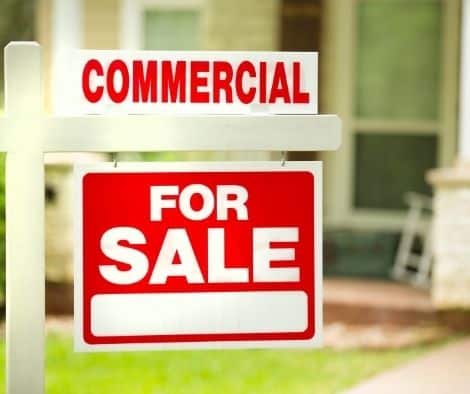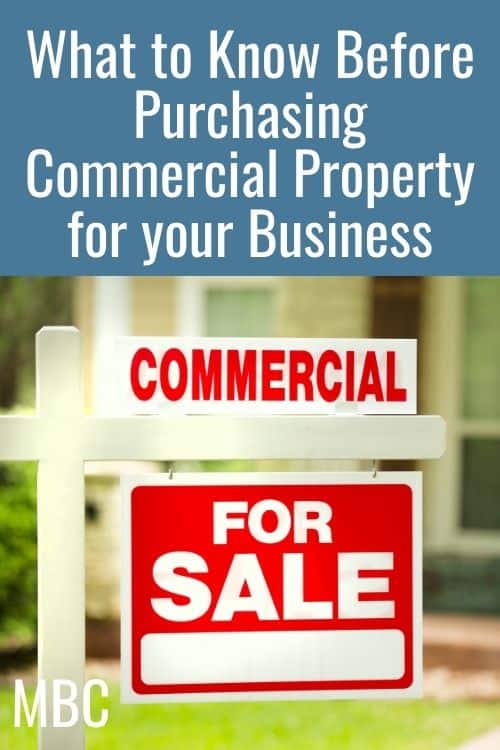Purchasing rather than leasing a commercial building is a big step that holds promise in offering you the keys to broaden the scope of your business’ freedom. There are many considerations that you need to make, from ensuring that the property in question has the right electrical systems and commercial plumbers on tap to help. You need to know that your commercial property is going to be the right one, so that means being as versed as possible before you go ahead!
In fact, making the choice to purchase your own commercial property can open up numerous doors in terms of flexibility, including the management of the building and the option to relocate whenever you wish.
While buying a commercial property for your business is clearly a rewarding decision, it can become a complicated matter if the correct preliminaries aren’t taken into account.
Before you commit to buying a commercial property for your business, it’s paramount to consider a number of different attributes. In this post, we’ll be outlining the many steps that you should take prior to securing your purchase.

Choose the Area Wisely
The location of your commercial property is a crucial aspect in offering accessibility for deliveries, employees and attracting customers in the nearby area.
A location without good transport links means you’ll be less likely to source team members as well as customers to visit your business.
Of course, not all business properties are located in bustling, central areas. In this case, you’ll need to have a robust marketing strategy in place to encourage potential customers to travel to your business.
For the best outcome, make sure to conduct thorough research into any factors that could hinder your property’s location in the future and ultimately cause a decline in your business.
It’s equally as important to research any factors that could benefit your property’s value in the future, such as plans for a railway line construction.
Consider the suitability of the Property for Your Business
When buying a commercial property, many business owners choose to jump ahead with purchasing without thinking rationally.
To avoid any pitfalls, you’ll need to consider how suitable the property is for your business needs.
It’s safe to say that you’ll want to avoid paying for extra space that you won’t particularly need, so another main factor that business owners should first consider is the size.
However, it’s wise to also consider the possibility of any potential expansion of your business so that you don’t end up losing more cash in the long-term.
You should also take into account how much room your business will need for stock, equipment, and furniture, as well as how much space your employees will need to work comfortably.
Next up, make it a priority to research the property’s legalities, such as planning laws and building regulations for future expansions, as well as the basic facilities that are included, such as power, heating, plumbing, phone and internet.
All of these features will not only help your business operations to run smoothly, but can also contribute to a higher resale value if and when you need to upsize.
Consider The Property’s Access
If you’re looking to purchase an office in a shared building, you’ll need to enquire about the access restrictions.
This is especially vital for businesses who will need to enter the building at times outside of the usual working weekday hours.
As mentioned earlier, it’s essential to consider the transport links and options for parking that are available not only for yourself but for your employees and customers, too.
Check the Security of the Property
Regardless if you don’t plan to store valuable stock or equipment at your premises, it’s also important to ensure that the property can be adequately secured to prevent damage.
From 24/7 security guards to strong door locks and safe boxes, make sure that you’re fully aware of the security measures that are already in place, or find out if there is an option to add them.
Visit the Property in Person
While a property may sound good online or on paper, the only way to find out for certain is to visit it in person.
It may sound like a given, but visiting the commercial property will allow you to realistically envision how your business will be operating in the building, and can even highlight or point towards any faults or defects that were not mentioned by the seller.
Once your contract has been exchanged and finalised, you won’t be able to back out if things go awry.
This is because non-disclosure of defects within a commercial property is not punishable by law, leaving you in full financial responsibility if problems occur.
Ensure that the property is surveyed
It’s important to note that most mortgage lenders will require at least an environmental search, local search, and a drainage and water search.
A professional surveyor can minimize or even completely cut out the risks of both costly problems and potential liabilities for you further down the line.
They’re able to raise any issues with the buyer and seller pre-exchange, with the end result often being a renegotiation in the property’s price.
Once you’ve agreed to buy, you’ll need to keep on top of your building’s maintenance, such as with drainage CCTV surveys to identify any issues that could trouble your premises at a later date.
Don’t Forget to Budget
It’s understandable that buying a commercial property for your business won’t come cheap. For smaller businesses, it may be a safer move to consider leasing for the time being instead.
If you do decide to buy, take the time to think about the additional short-term costs for all of your businesss’ assets such as furniture and equipment, as well as the ongoing costs, such as bills and building maintenance.
Remember, most mortgage lenders will require a 20% deposit of the property’s value, so you’ll need to consider if this can be aligned with the property’s upcoming expenses.
Try to estimate any hidden costs as accurately as possible, and be sure to search for this in the contract itself.
Get Expert Advice
While obtaining expert advice and assistance is an optional choice, the benefits shouldn’t be overlooked.
Professionals such as accountants, commercial real estate legal representatives, or brokers can all help to guide you in the best direction while making your purchase decision.
- DISCLOSURE – This post has been written by an outside source



